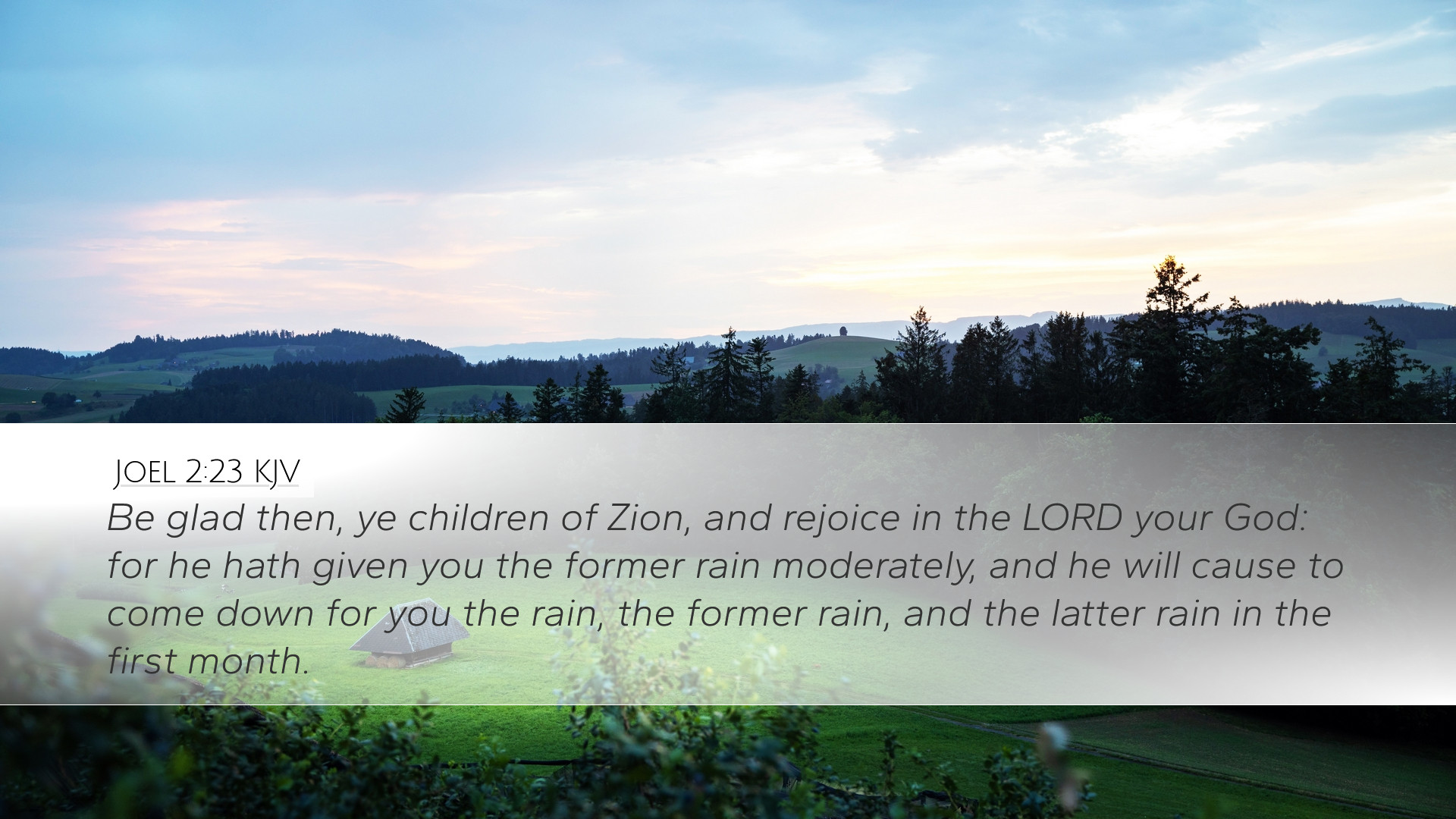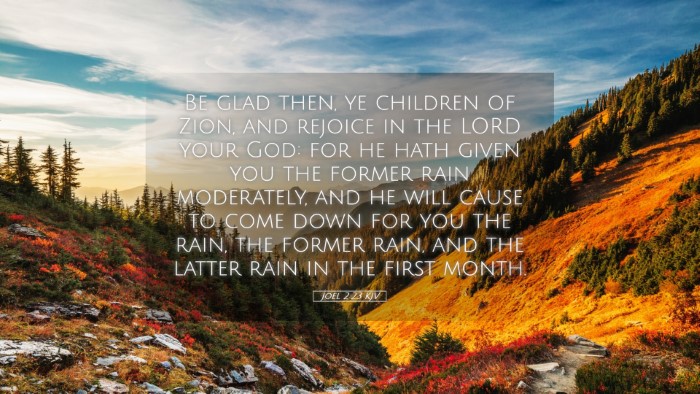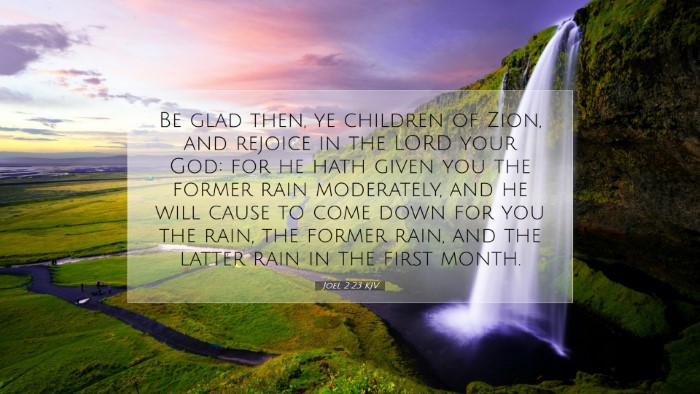Commentary on Joel 2:23
Verse: "Be glad, O children of Zion, and rejoice in the LORD your God; for He has given you the former rain moderately, and He will cause to come down for you the rain, the former rain, and the latter rain in the first month." (Joel 2:23)
Introduction
The book of Joel primarily addresses the people of Judah after a devastating locust plague, symbolizing spiritual desolation. Chapter 2 shines a light on restoration and hope. Joel 2:23 serves as a pivotal verse where God's grace is manifested through His promise of abundant blessings.
Exegesis of Joel 2:23
This verse is filled with theological depth regarding God's restoration. The imagery of rain represents blessings, prosperity, and the revitalization of the barren land, which resonates profoundly with pastoral and theological insights. The term “former rain” refers to the early rains that farmers in Israel depended upon for the sowing season, while “latter rain” signifies the rains necessary for a successful harvest.
Interpretative Insights from Commentators
-
Matthew Henry:
Henry notes that this verse urges the people of Zion to rejoice in the Lord as they anticipate His blessings. The "former rain" signifies God's nurturing involvement in the cycles of nature and indicates His prior provision. He underscores divine faithfulness, suggesting that the promise of both rains is indicative of an impending spiritual and material abundance.
-
Albert Barnes:
Barnes emphasizes the dual nature of the rains as a metaphor for the grace of God. He interprets the promise of rain as a dual fulfillment of physical and spiritual needs—God not only restoring the land but also renewing the people's spirits. He specifies that God’s blessings in both the early and latter rains reflect a rich and complete salvation, because the timing is essential for agricultural prosperity.
-
Adam Clarke:
Clarke elaborates on the significance of “the first month,” linking it with the Hebrew calendar and emphasizing the new beginnings it symbolizes. He elaborates that the conjunction of both rains signifies an extraordinary intervention from God, where the reparative seasons come together. He also stresses that this restoration is an act of divine mercy, intended to draw the people back to God in repentance and reliance on Him.
Theological Implications
The implications of this verse extend far beyond the historical context, addressing themes of restoration and renewal that resonate with church leaders and theologians today:
- Joy and Gratitude: The command to "be glad" resonates with the Christian call to rejoice always, reflecting a posture of gratitude even amidst trials.
- God's Faithfulness: This promise reassures us of God’s provision and faithfulness. It encourages a trust in God's timing and sovereignty over both spiritual and physical realms.
- Repentance and Restoration: The blessings in this passage are contingent upon the people's repentance. It emphasizes that spiritual renewal often precedes temporal blessings.
- Holistic Blessing: The dual metaphor of rain signifies God's concern for complete restoration—spiritual and material—reminding us that God's plans encompass every aspect of life.
Practical Applications for Ministry
For pastors, students, and theologians engaged in ministry, Joel 2:23 serves as a reminder of how to lead communities in times of trial:
- Encouragement in Community: Just as Joel called the community to rejoice, pastors should foster environments where joy and gratitude are central, especially in times of hardship.
- Emphasizing God's Provision: Teach congregations about God’s faithfulness. Highlighting testimonies of provision can strengthen faith within a community.
- Call to Repentance: Regularly emphasize the importance of repentance—not as a burden, but as a pathway to renewed joy and blessings.
- Spiritual Growth and Maturity: Encourage believers to seek after God’s presence and His Word as a means to receive the “former and latter rains” in their lives.
Conclusion
Joel 2:23 echoes throughout the scriptural narrative as an assurance of God's restorative power. It speaks to a core truth that in God’s economy, renewal and abundance are possible after every season of drought and barrenness. Engaging deeply with this verse allows believers to see the hope provided in Jesus Christ—the ultimate fulfillment of God’s promise of restoration—leading not only to physical flourishing but a deep, abiding relationship with God.


